Freight and Logistics Definitions
BILL OF LADING
A bill of lading is a binding contract that serves three main purposes: a receipt for the goods delivered to the transportation provider for shipment; a definition or description of the goods; and evidence of title to the relative goods, if “negotiable”.
COMMODITY
Commodities are goods which are shipped.
CONSIGNEE
A consignee, also known as a receiver, is the party which receives the goods in a freight shipment.
DETENTION
Detention is a penalty fee for delaying the carrier’s equipment beyond the allotted time. Typical allotted time is 2 hours for loading and 2 hours for unloading a full truckload.
DRY VAN
Dry van trailers are designed to transport the most versatile of dry products due to the fully enclosed nature of the trailer, which allows freight to be protected from the elements. Palletized products are most common as they can be efficiently and safely loaded / unloaded with a forklift or pallet jack from a dock.
FLATBED
Flatbed trailers are designed to transport products which are long, heavy or oddly proportioned which creates a challenge when loading/unloading an enclosed trailer. The open nature of the trailer allows for loading / unloading from the rear, sides or top; allowing forklifts and cranes to create an even lift on the freight. Flatbeds are best suited being loaded / unloaded from the ground, rather than from a dock.
FREIGHT
Freight is any product being transported.
FREIGHT BROKER
A freight broker, also known as a 3PL or third-party logistics company, is an independent contractor paid to arrange freight transportation. Unlike asset-based carriers, freight brokers have much more available capacity since they are not restricted to certain a set of available assets.
FULL TRUCKLOAD
Full truckloads are shipments which require the use of a full trailer.
INTERMODAL
The use of two modes (truck and train) to complete a single long-distance movement of freight. The freight is typically loaded in a standard dry van which is pulled by a truck. The truck takes the freight to the nearest rail yard (ramp) so the trailer can be loaded onto a train for transit. The trailer is removed from the train once it arrives at a rail yard near the final destination. Finally, trailer is hooked back up to a truck, which will deliver the goods to the final destination. This mode of transportation can offer significant cost savings on long haul shipments.
LIFT GATE
A lift gate is a mechanical device attached to the back of a truck so that a heavy object can be lifted to or from the ground.
LESS THAN TRUCKLOAD
Less than truckload, or LTL are shipments which utilize 12 linear feet or less. LTL shipments are typically performed by national or regional LTL carriers who have built hub and spoke models designed to efficiently move smaller freight shipments.
PALLET JACK
A pallet jack is a tool used to lift and move pallets.
PARTIAL TRUCKLOAD
Partial truckloads are shipments which do not require use of the entire trailer. These shipments can be combined with other shipments resulting in reduced costs to ship freight. This method is typically associated with partial shipments which exceed 12 linear feet. For partial truckloads less than 12 linear feet, see LTL.
RGN
RGN (removable gooseneck, also called low boy or double drop) trailers are designed to transport oversize freight, both legally and through the use of permits / escorts. RGNs are specifically useful for products which can be driven onto the trailer, such as tractors, specialty vehicles, and heavy machinery. With the ability to detach from the cab, and with drop down ramps, freight can easily be driven on and off.
REEFER
Reefer trailers are designed to transport products which require to be kept at a specific temperature or temperature range through the entirety of the transit. While reefers are traditionally utilized to keep freight cold, reefers have the ability to be kept at warmer temperatures to protect freight from freezing, or run dry freight with the refrigeration unit turned off.
SHIPPER
A shipper is the party which sends or ships goods in a freight shipment.
TONU
TONU, an acronym standing for “Truck Ordered, Not Used”, is a cancellation charge for ordering a truck and then cancelling the order.
STEP DECK
Step deck trailers, also known as drop decks, are designed to transport products which are too tall for a standard flatbed. The trailer consists of two decks, the upper and lower. The use of the lower deck, or well, allows for freight up to 10’ high to be legally transported, while still providing the same loading / unloading capabilities of a standard flatbed.


